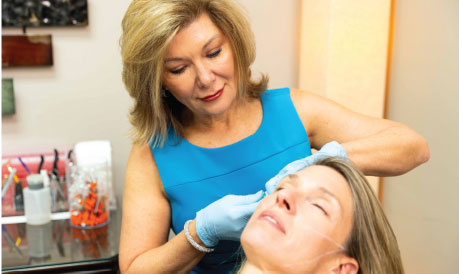APRIL SHOWERS BRING SPRING FLOWERS – Yes, we have heard this before. Unfortunately for many, April typically brings lots of allergens.
Also, I am hearing something else on the news recently. 2020 is expected to be a very bad allergy season for persons who suffer from seasonal allergens. If the spring allergens are not enough, there are more throughout the year – tree pollen, for example, pops up in the spring (generally in late March to April), grass pollen arrives in the late spring (around May), weed pollen is most prevalent in the summer (July to August), and ragweed pollen takes over from summer to fall (late August to the first frost). And even worse news: climate change means allergy season begins earlier and lasts longer according to experts in this field of study.
The spring season is notorious for causing people a lot of misery. Itchy, watery, and painful eyes can make the prettiest time of year the most dreaded. There is good news for those of you who suffer from seasonal allergies – relief is available.
Your eyes can overreact more than any other body part. When pollen starts falling, you probably suffer from a condition called allergic conjunctivitis or ocular allergy. It happens when something you are allergic to affects the conjunctiva, which is the membrane that covers your eye and eyelid.
The reason your eyes turn red, itchy, watery, and painful is that your immune system says, “Something is in the air, which is making me uncomfortable.” This “something” or threat is considered an allergen. Since your immune system believes it’s harmful to you, it stimulates the production of antibodies called Immunoglobulin (IgE). These antibodies are what end up causing an allergic reaction – your eyes become inflamed and irritated. This is especially true when the pollen count is high on certain days.
What to Do About Ocular Allergies
Ocular allergies pose no threat to your eyesight, and they are not contagious. It’s not like pink eye, even though the redness can appear like it. The allergic reaction can impact sufferers’ quality of life, as it causes blurry vision, constant rubbing of the eyes, redness, and just being miserable.
To treat, make an appointment with your eye care provider. An allergy test can be performed to confirm if the problems are due to pollen and/or mold spores. You can obtain a lot of information on the internet about how to treat allergies with items such as antihistamines, nasal sprays, decongestants, staying inside on windy days, delaying yard work when the pollen count is high, and so much more. However, when it is eye-related, see a doctor, have the allergy test, and be treated by a professional.
Summit Eye Care performs the allergy testing for patients, which helps identify the culprit causing the misery. In most cases, insurance covers the testing. Beware that not all of the red, itching eyes are caused by allergens. Your eye care provider will make this determination and give the best guidance for treatment, whatever the cause.
Summit Eye Care is located in Winston-Salem. In addition to performing allergy testing, Summit Eye Care provides premium cataract surgery, treatment for diabetic and glaucoma patients with the latest in laser technology, in-office surgical procedures, routine eye care, including contact lens as well as specialty contact lens fittings. Our practice is the only designated Dry Eye Center in Winston-Salem, and we diagnose and treat all types of dry eye problems. Request a date for your examination today: 336-765-0960.





















